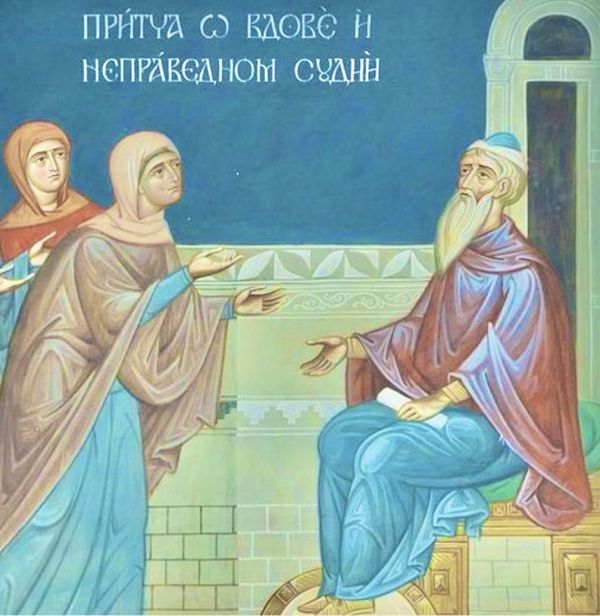Chapter eighteen of Luke recounts the parable of the judge and the importunate widow, emphasising the value of personal prayer that is engaging, confident and constant.
Those who know a little about the Poor Man of St. Mary of the Porziuncola know that continuous prayer was like oxygen for his lungs.
Various passages from the Sources describe how much Francis loved it and sought out places where he could give free rein to his big heart.
"He often conversed aloud with his Lord: he gave account to the Judge, he implored the Father, he spoke to his Friend, he joked amiably with his Spouse.
And in reality, in order to offer God all the fibres of his heart in a manifold holocaust, he considered in various ways the One who is supremely One [...]
He directed his whole mind and affection to that one thing he asked of God: he was not so much a man who prayed as he was himself transformed into a living prayer" (FF 682).
Celano informs us in the First Life:
"His safe haven was prayer, not of a few minutes, or empty, or pretentious, but deeply devout, humble and prolonged as much as possible. If he began it in the evening, he could hardly tear himself away from it in the morning. He was always intent on prayer, when he walked and when he sat, when he ate and when he drank. At night he would go alone to abandoned and remote churches to pray; thus, with the grace of the Lord, he managed to triumph over many fears and spiritual anxieties" (FF 445).
Confirming his ardent faith in God, he expresses himself thus in the Leggenda Maggiore:
«I, small and simple, inexperienced in speaking, have received the grace of prayer more than that of preaching.
In prayer, moreover, one either acquires or accumulates graces; in preaching, on the other hand, one distributes the gifts received from heaven [...] In prayer we speak to God, we listen to him, and we remain among the Angels» (FF 1204).
His faith grew day by day, because it was imbued with divine relationship, certain of being heard by grace and not by merit, thus becoming a giant herald and witness of the Word.
«But will God not do justice to his chosen ones, who cry out to him day and night?» (Lk 18:7)
29th Sunday in Ordinary Time, year C (Lk 18:1-8)












